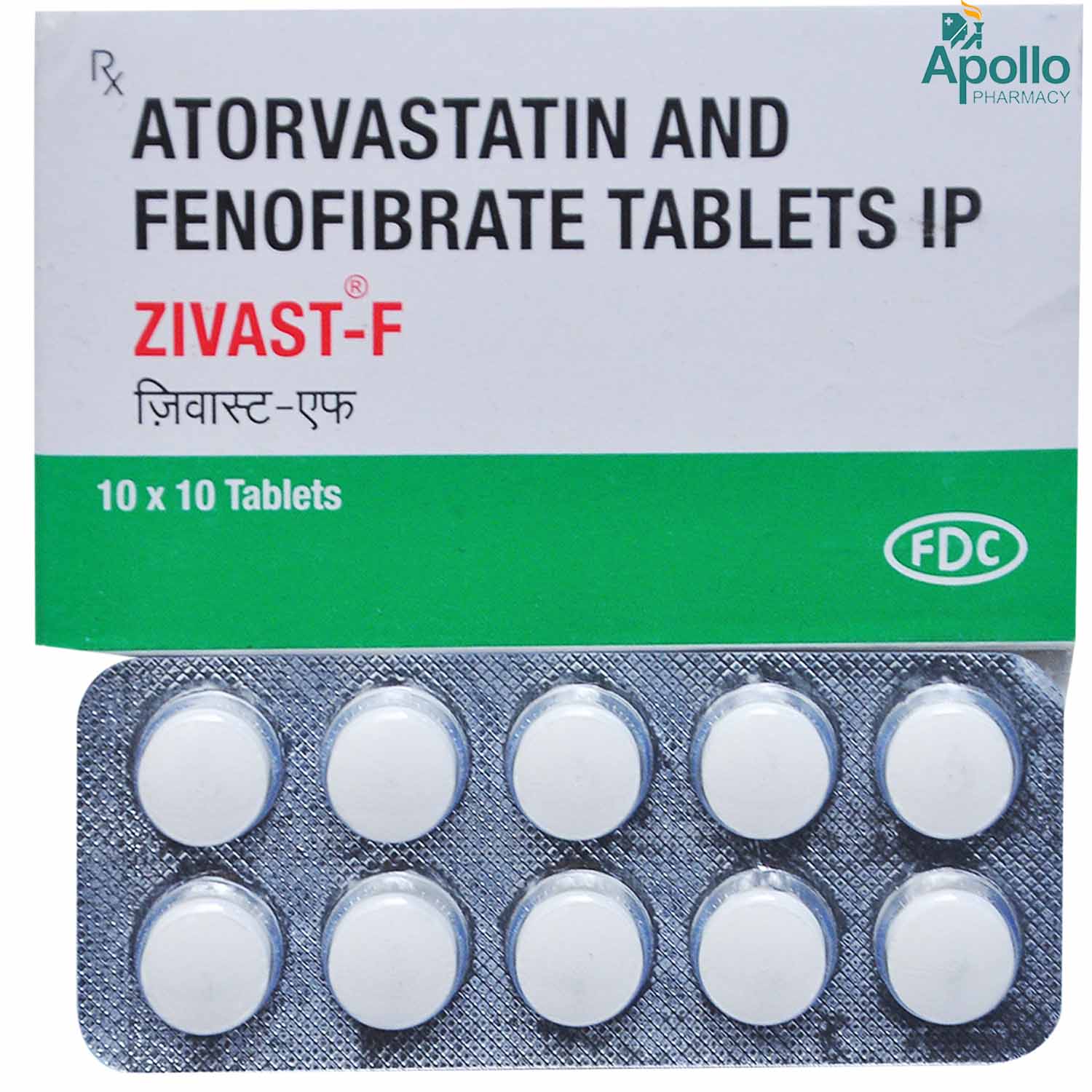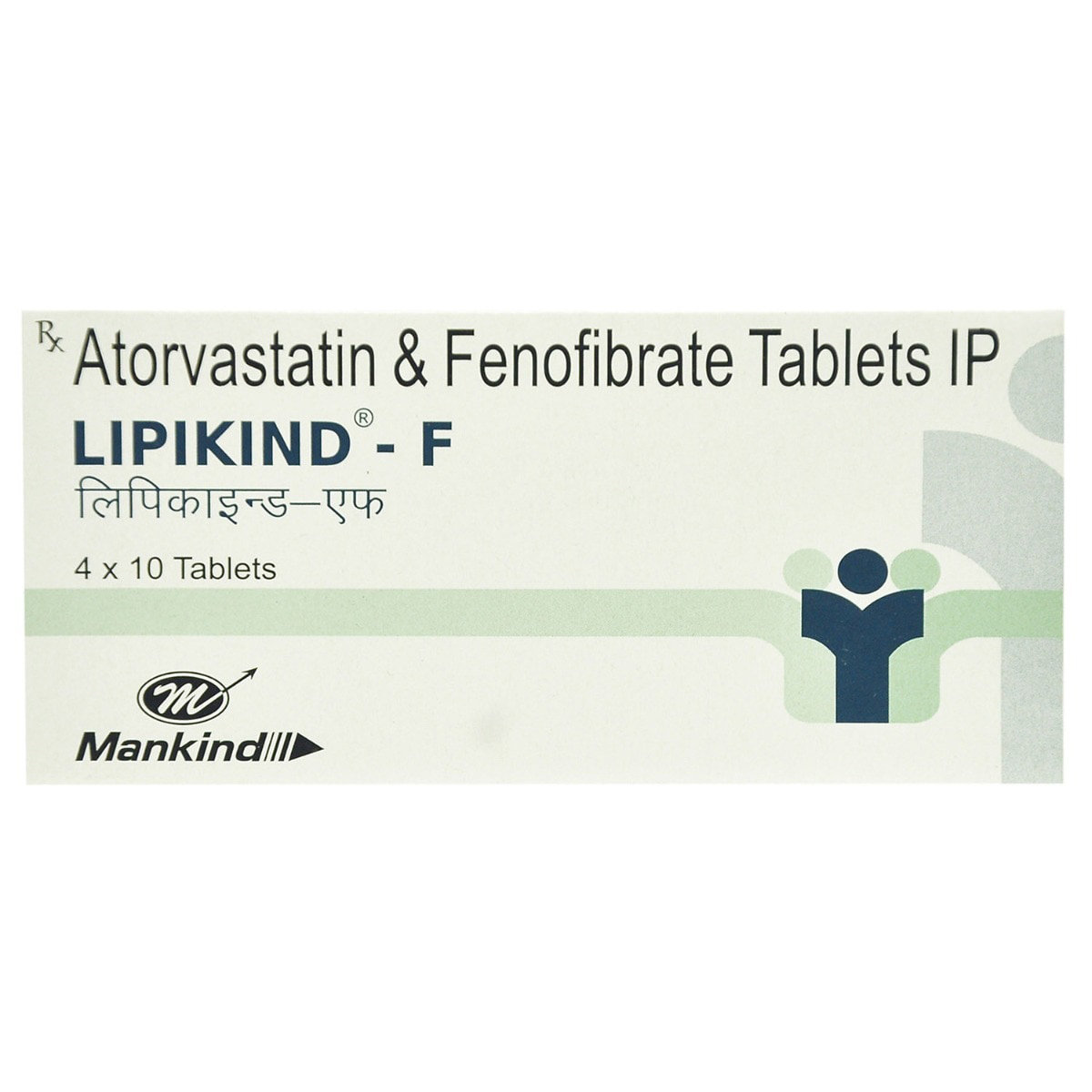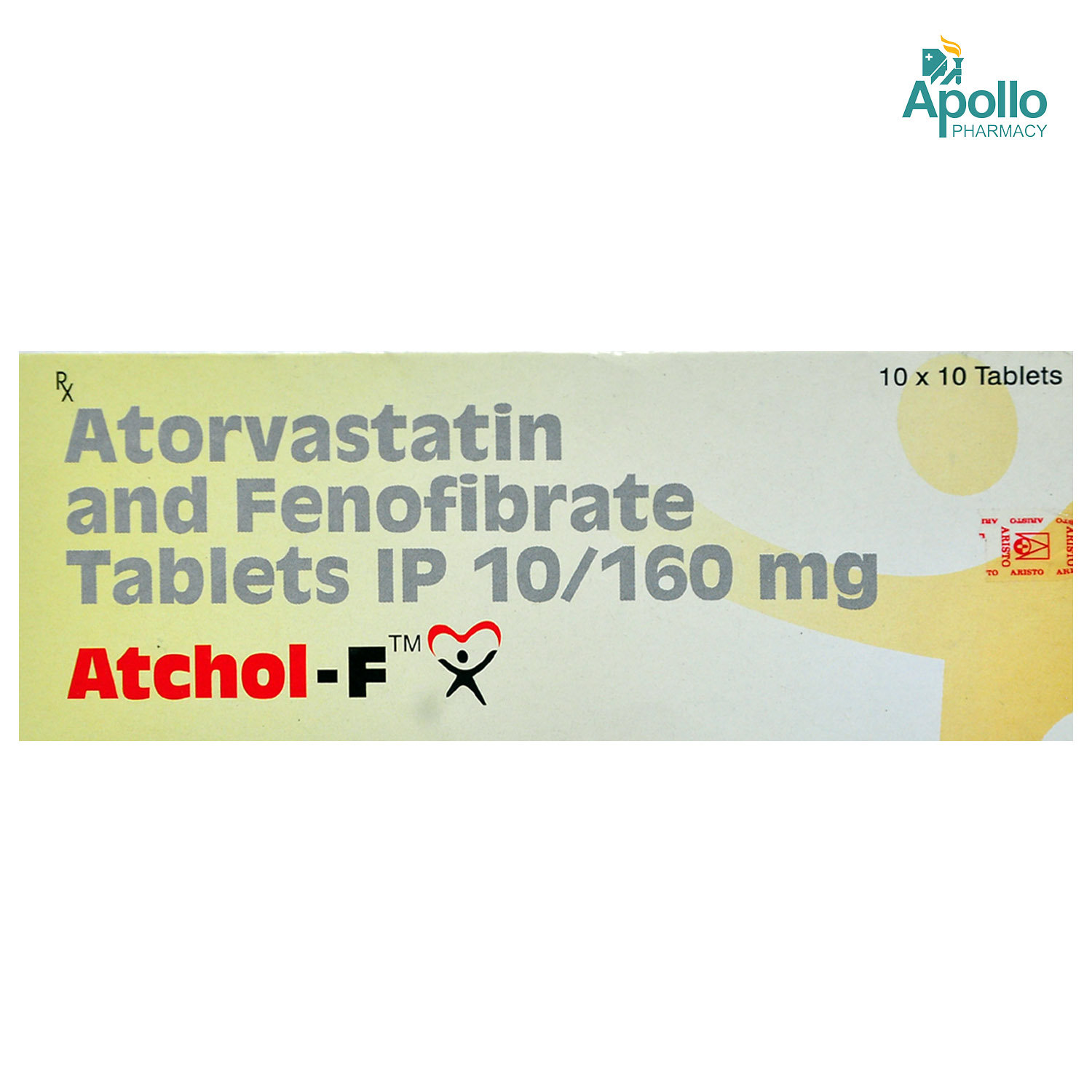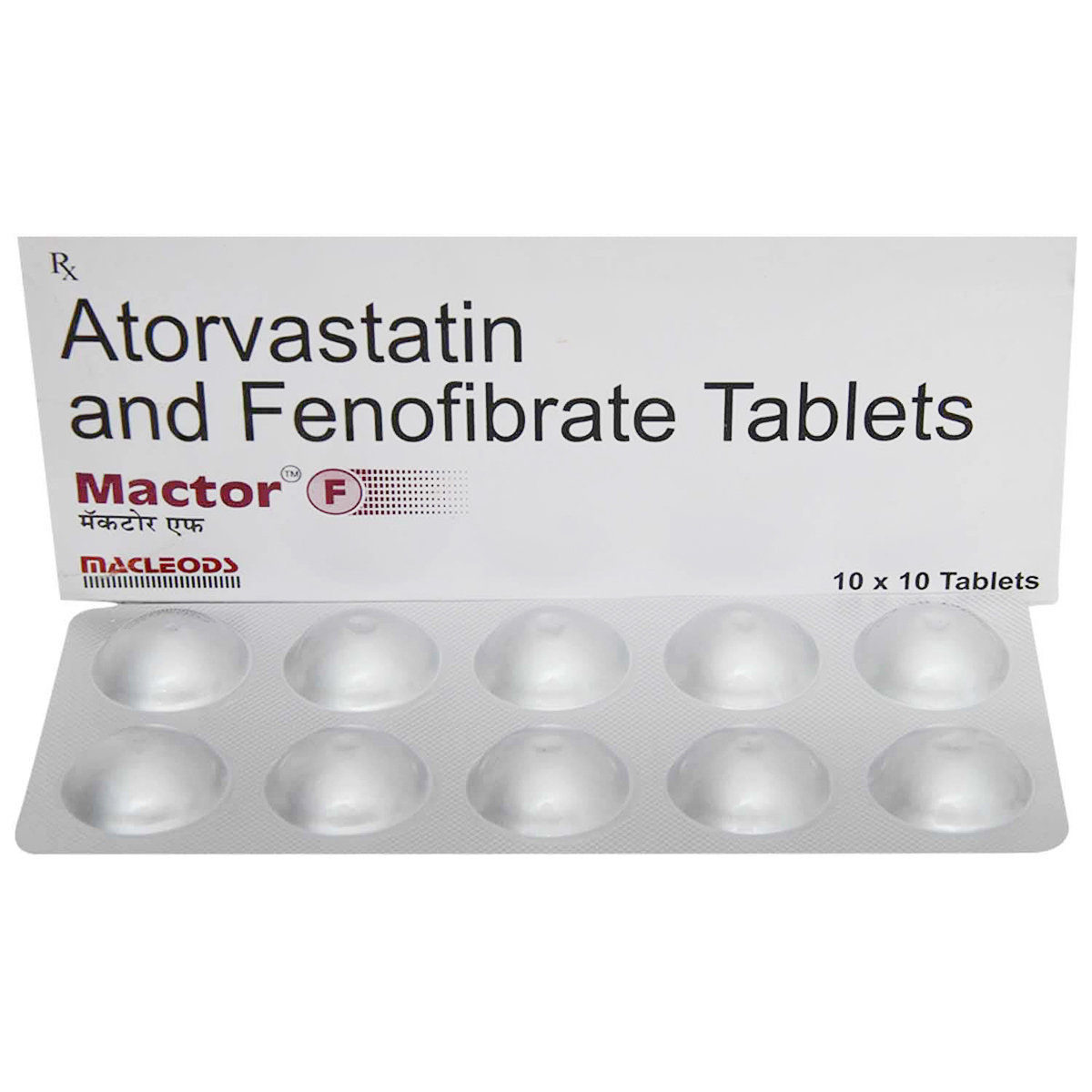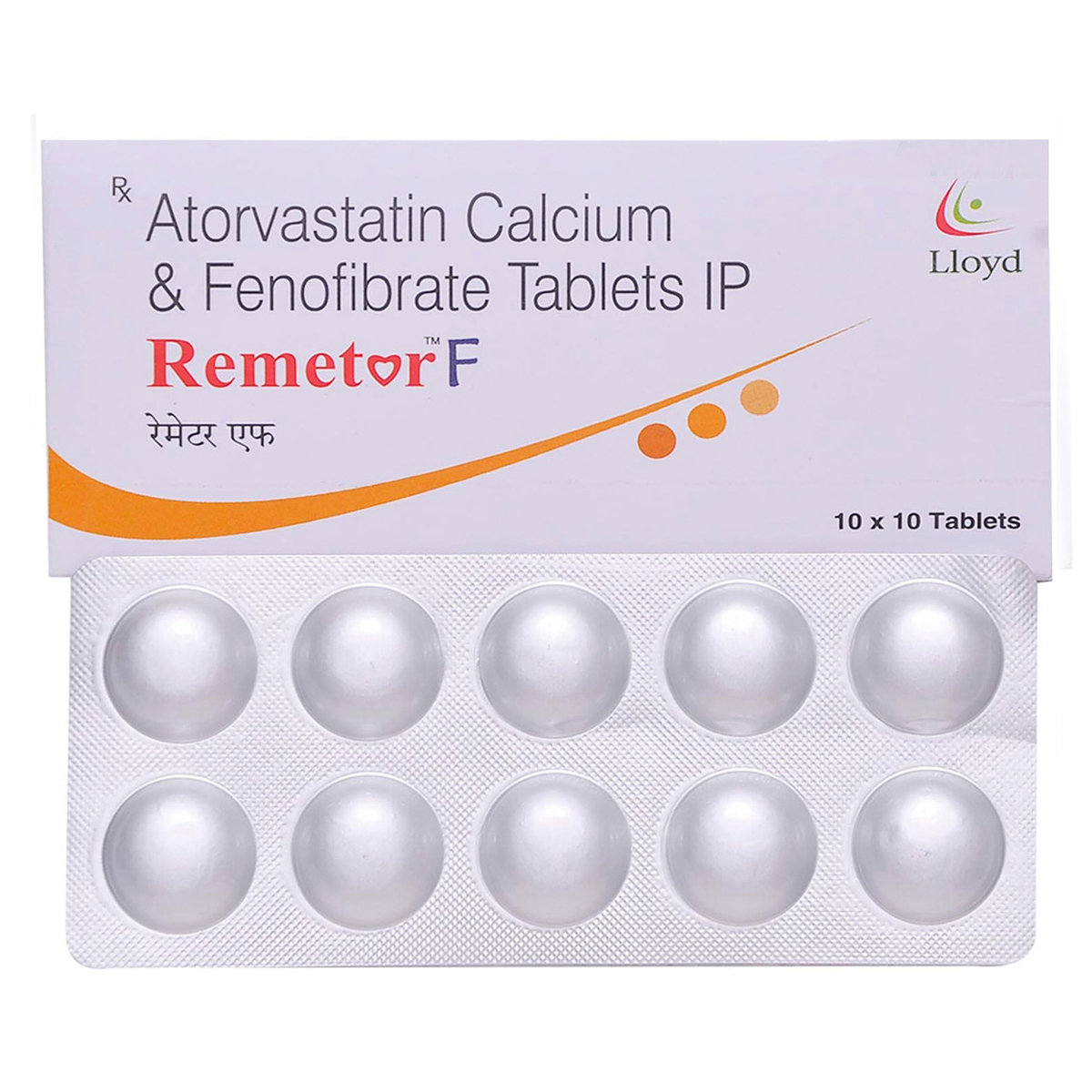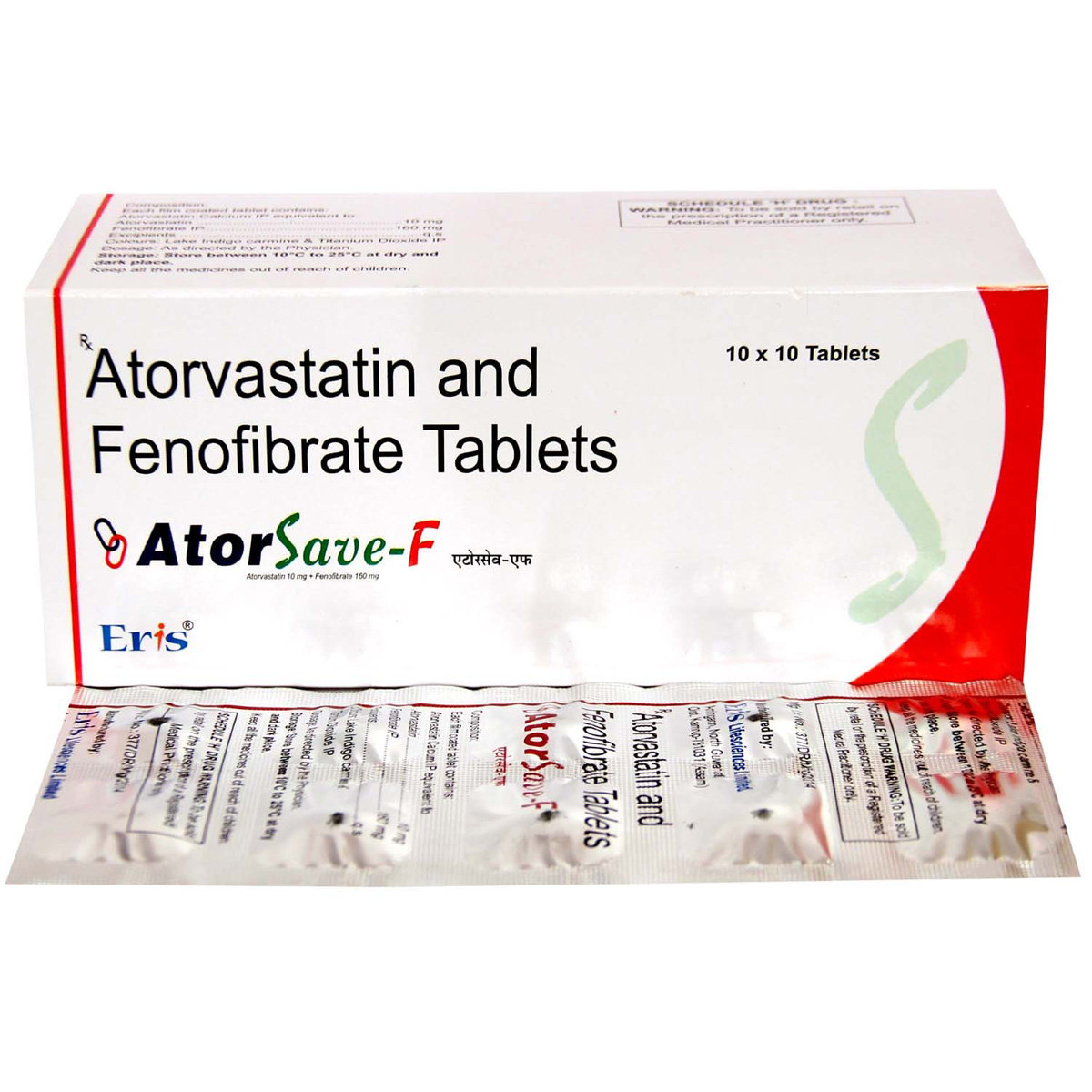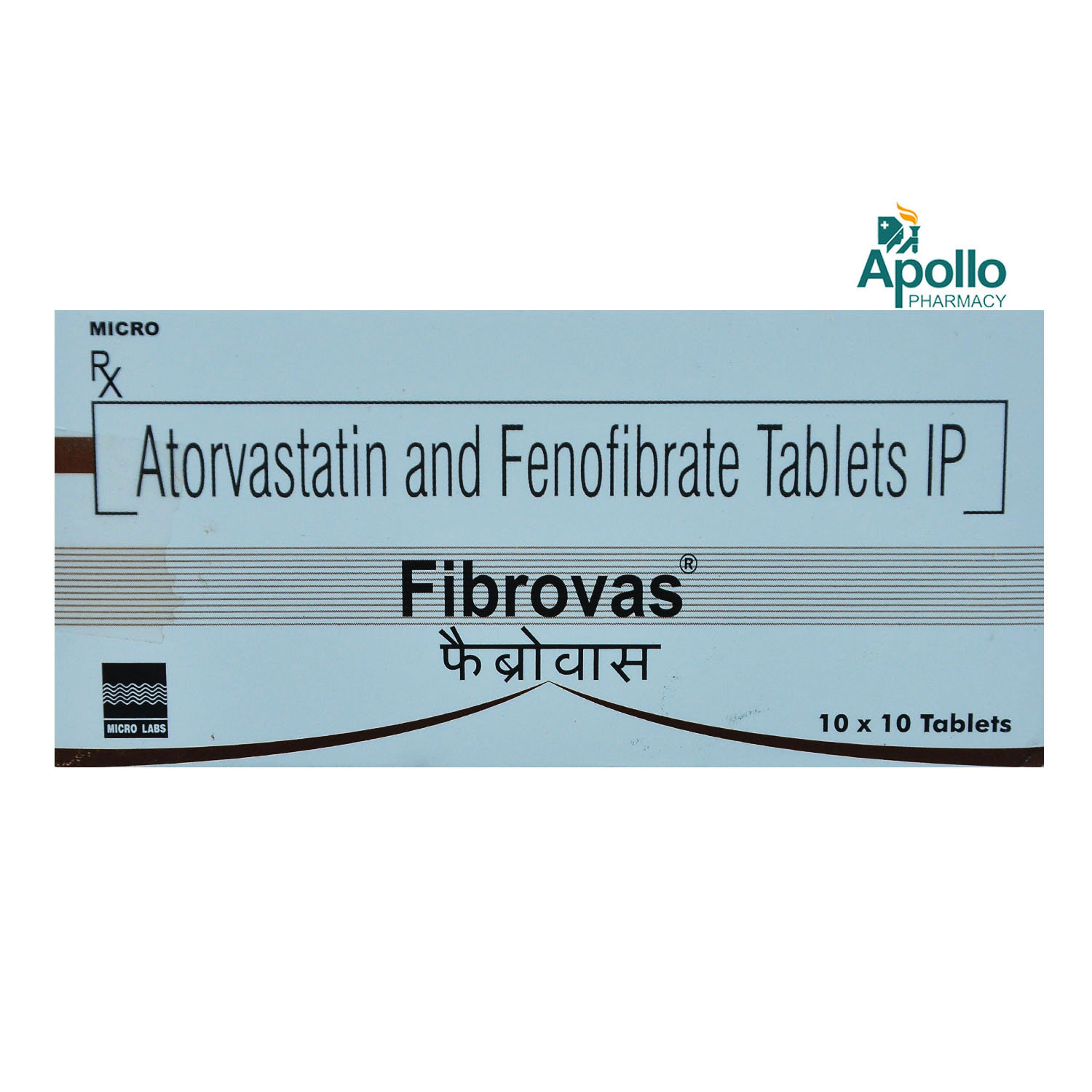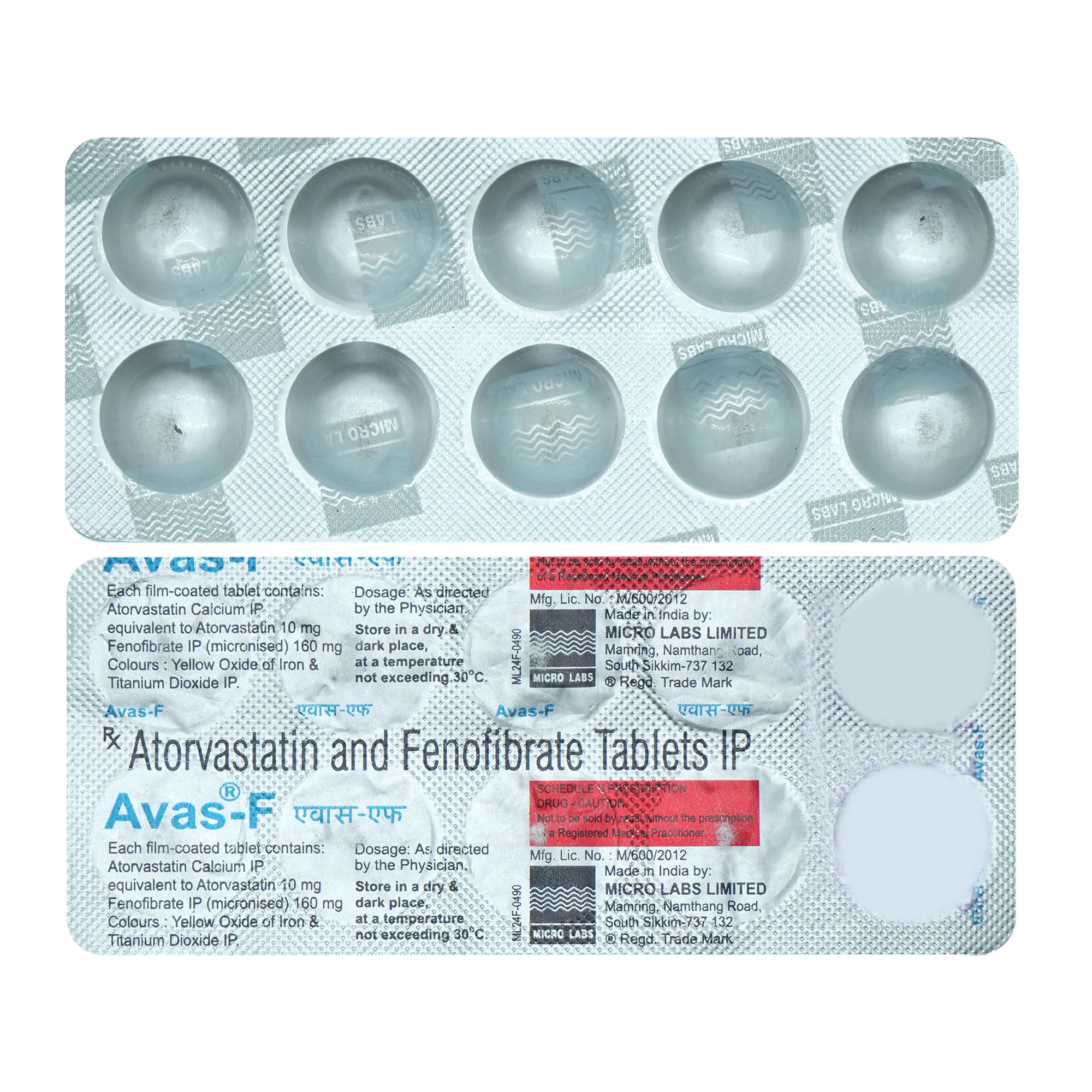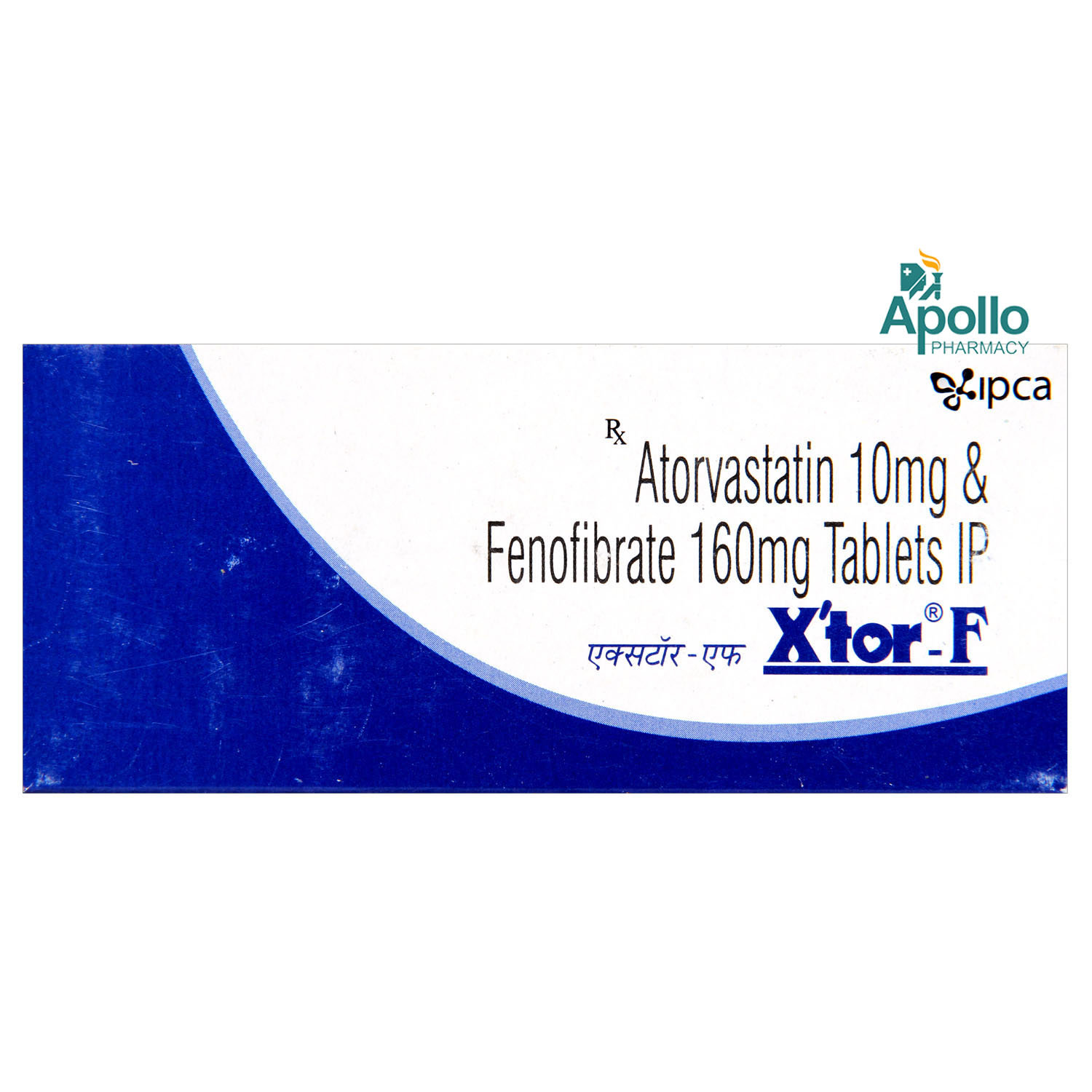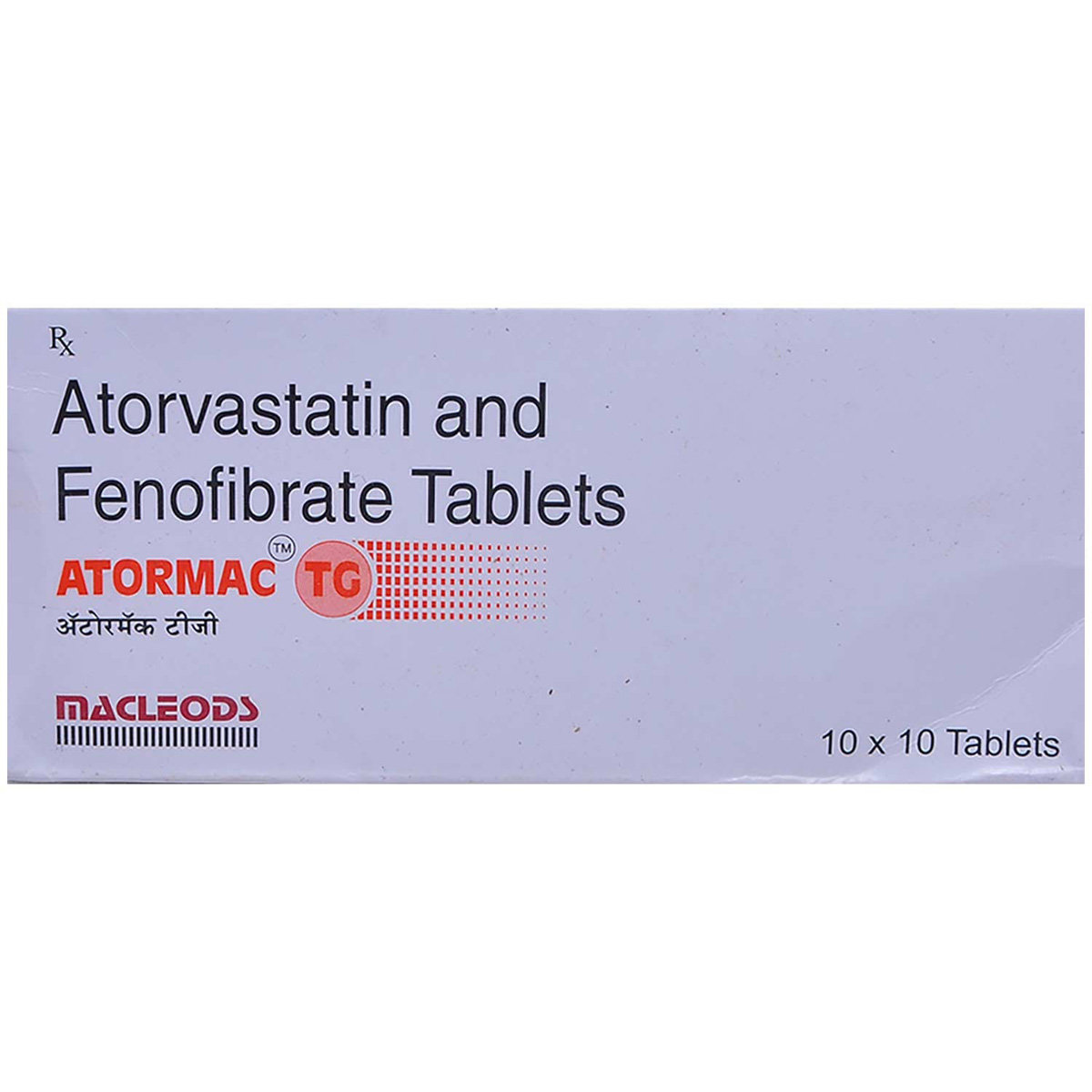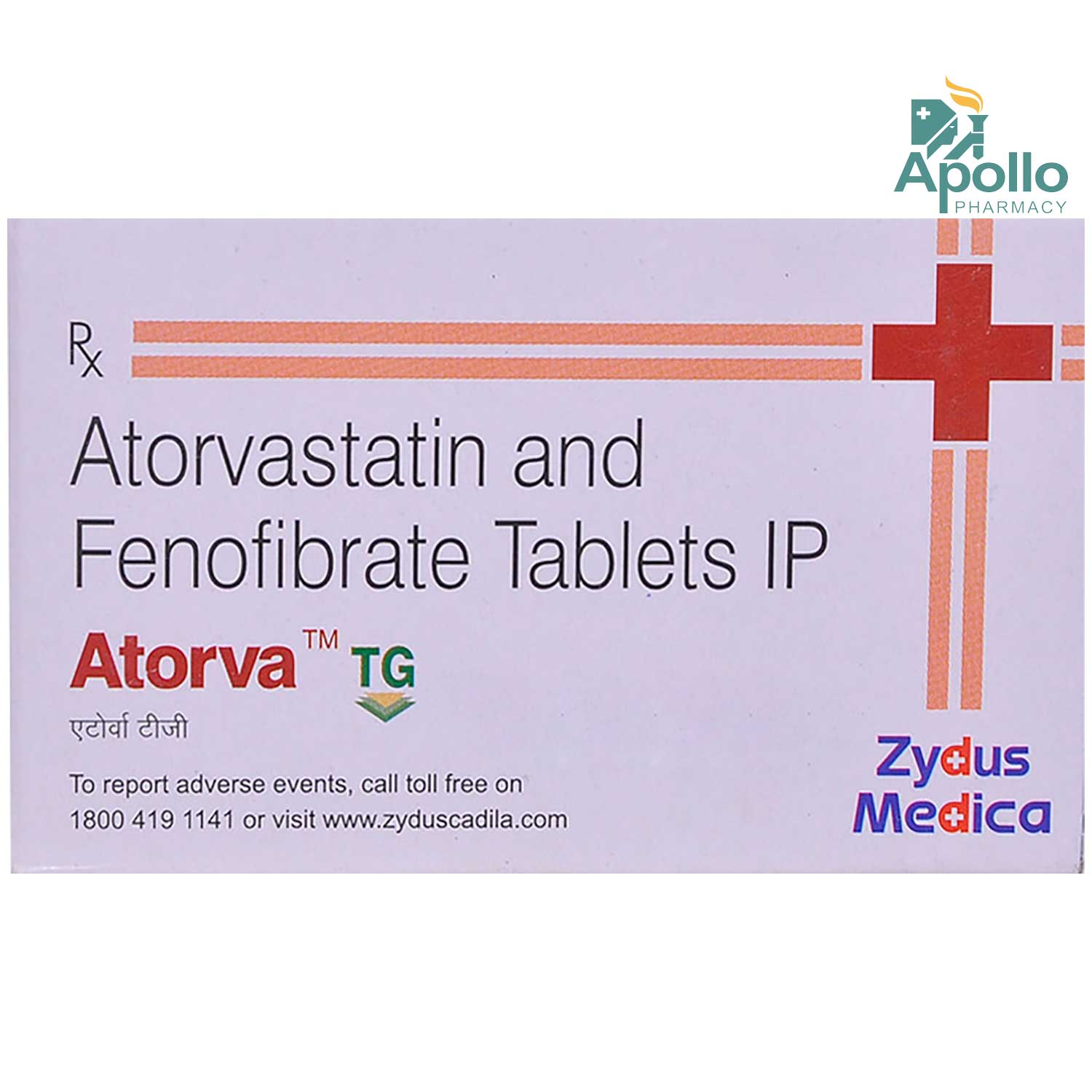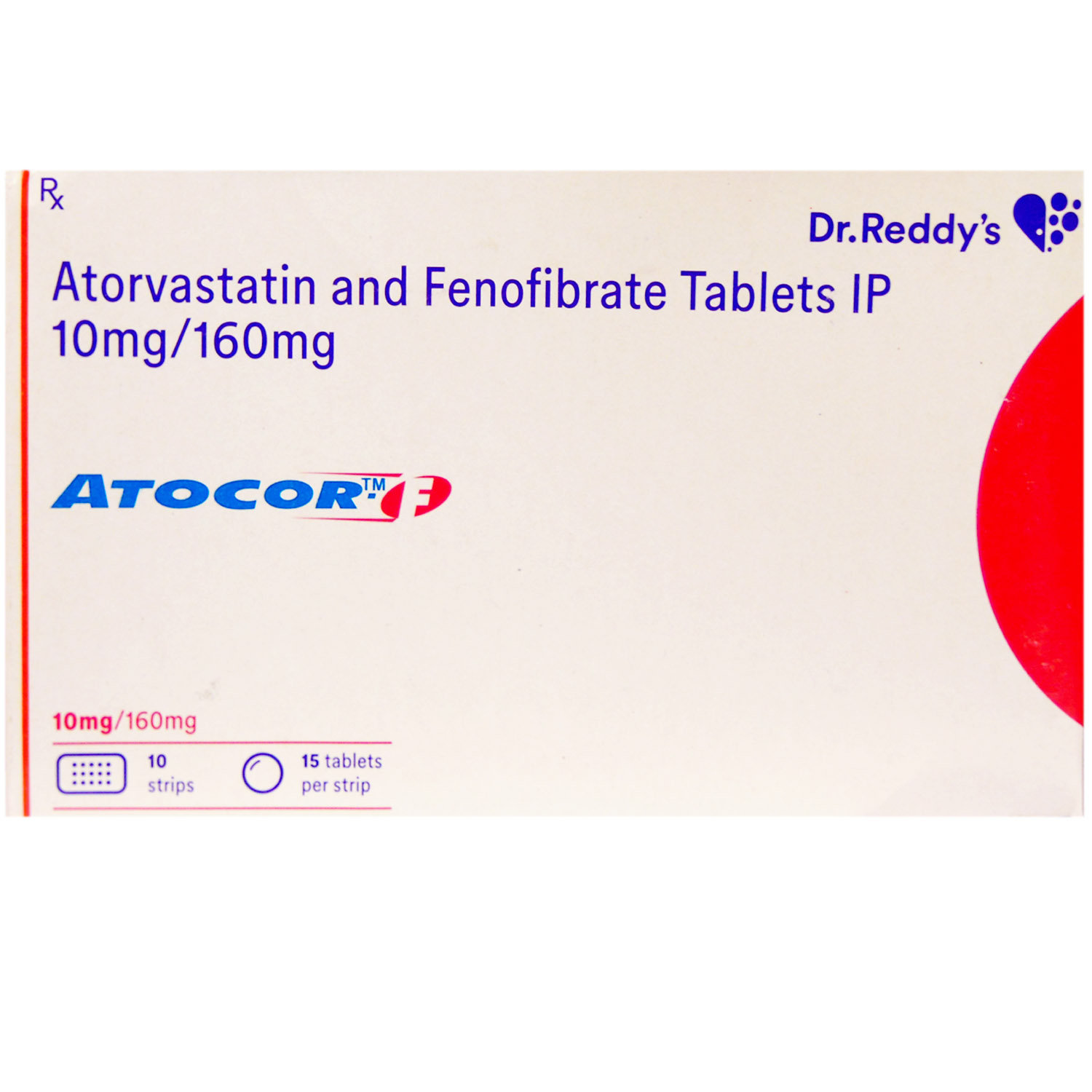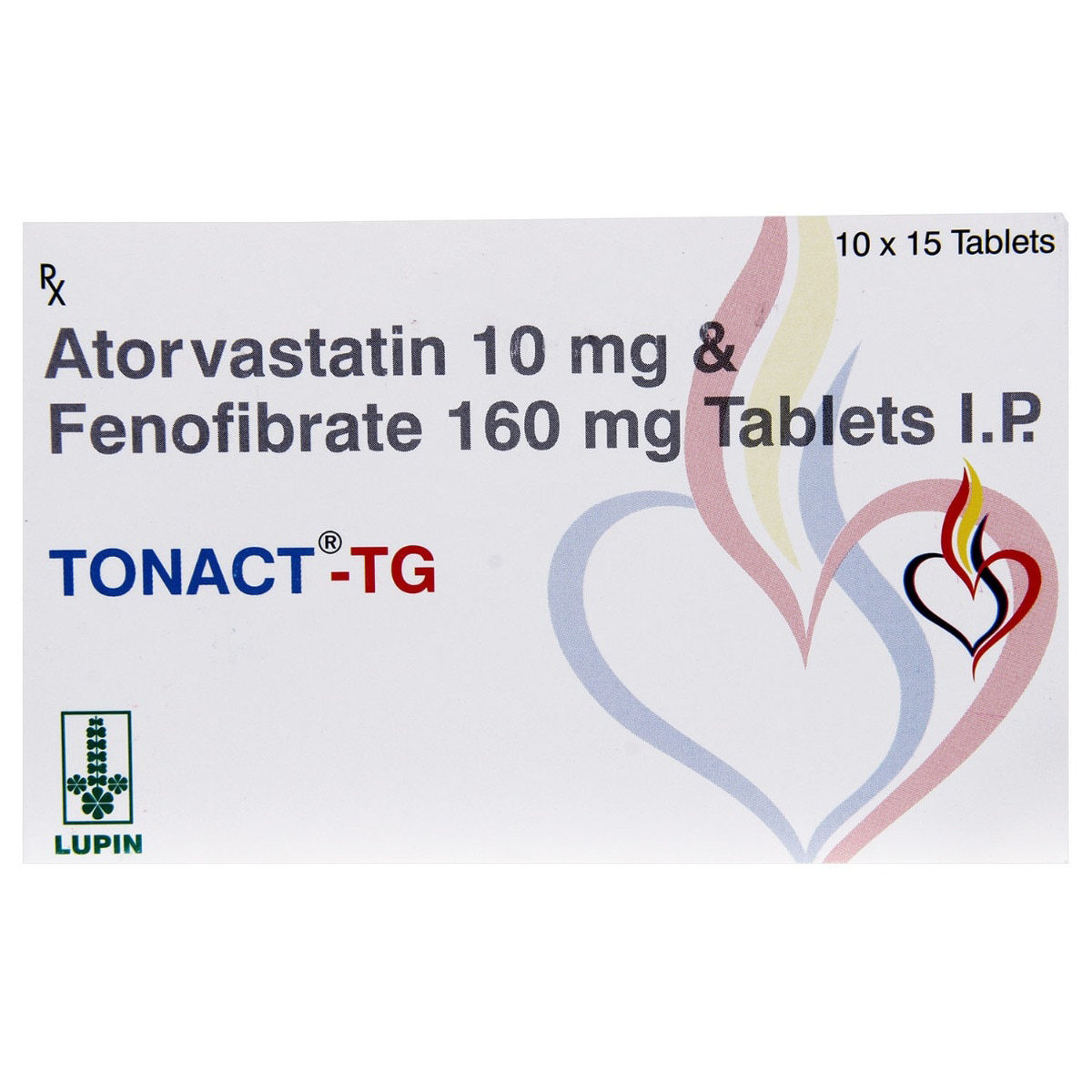FENOTG PLUS TABLET


MRP ₹241
(Inclusive of all Taxes)
₹36.1 Cashback (15%)
Provide Delivery Location
Online payment accepted
 Prescription drug
Prescription drugWhats That
Composition :
Manufacturer/Marketer :
Consume Type :
Expires on or after :
Return Policy :
About FENOTG PLUS TABLET
FENOTG PLUS TABLET belongs to the class of medicines called antilipemic (lipid-lowering medicines) primarily used in the treatment of high lipid levels (cholesterol and triglycerides levels) and prevention of heart diseases and blood vessel blockage. Hyperlipidemia or hypertriglyceridemia is a condition in which there is a high level of low-density lipoproteins (LDL) or bad cholesterol and a decreased level of high-density lipoprotein (HDL) or good cholesterol. Increased level of bad cholesterol leads to a high risk of heart attack and stroke in the future, especially in patients with heart disease.
FENOTG PLUS TABLET is composed of two medicines, namely: Atorvastatin (HMG-CoA reductase inhibitor) and Fenofibrate (fibrates). Atorvastatin is a lipid-lowering medication that blocks the enzyme HMG-CoA reductase required to make cholesterol in the body. As a result, it lowers the bad cholesterol (low-density lipoproteins or LDL), and triglycerides (TG) and increases the levels of good cholesterol (high-density lipoproteins or HDL). Fenofibrate is another lipid-lowering agent which works by increasing the natural substance (lipoprotein lipase) that breaks down fats in the bloodstream thereby increasing its utilization and removal. As a result, it decreases harmful cholesterol like LDL (bad cholesterol), and triglycerides (TG) and increases levels of HDL (good cholesterol).
Take FENOTG PLUS TABLET as prescribed. Your doctor will advise how often you take FENOTG PLUS TABLET based on your medical condition. In some cases, you may experience allergic reactions, hyperglycemia (excess of glucose in the bloodstream), headache, blurred vision, stomach pain, constipation, headaches, joint swelling (edema), joint pain, muscle pain, back pain, slow heart rate, and nausea. Most of these side effects of FENOTG PLUS TABLET do not require medical attention and gradually resolve over time. However, if the side effects are persistent, reach out to your doctor.
If you are allergic to FENOTG PLUS TABLET or any component present in it namely atorvastatin or fenofibrate, please tell your doctor. If you are pregnant or breastfeeding, have hypothyroidism, drink more than 2 servings of alcohol per day, and have a muscle disorder (fibromyalgia) it is advised to inform your doctor before using FENOTG PLUS TABLET. FENOTG PLUS TABLET is not recommended for children below 12 years of age, as the safety and effectiveness were not established. If you experience yellowing of the skin (Jaundice), allergic reaction, cramps, or muscle weakness then immediately contact your doctor.
Uses of FENOTG PLUS TABLET
Directions for Use
Key Benefits
FENOTG PLUS TABLET taken with dietary measures helps in the treatment of high cholesterol and prevention of life-threatening conditions to the heart, especially for heart patients when initial dietary measures fail to lower cholesterol. It helps in lowering the bad cholesterol (LDL) and increases the level of good cholesterol (HDL) in the state of dyslipidemia or hyperlipidemia. FENOTG PLUS TABLET also lowers the amount of fat or cholesterol deposition (plaque) in the arteries of the heart thereby reducing the chance of having a heart attack or stroke in the future.
Storage
- Consult your doctor if you experience nasal congestion, runny nose, or sinus pressure after taking medication.
- Your doctor may adjust your treatment plan by changing your medication, adding new medications, or providing guidance on managing your rhinitis symptoms.
- If advised by your doctor, use nasal decongestants or saline nasal sprays to help relieve nasal congestion.
- Practice good hygiene, including frequent handwashing, avoiding close contact with others, and avoiding sharing utensils or personal items.
- Stay hydrated by drinking plenty of water and other fluids to help thin out mucus and soothe your nasal passages.
- Please inform your doctor about joint pain symptoms, as they may adjust your medication regimen or prescribe additional medications to manage symptoms.
- Your doctor may prescribe common pain relievers if necessary to treat joint discomfort.
- Maintaining a healthy lifestyle is key to relieving joint discomfort. Regular exercise, such as low-impact sports like walking, cycling, or swimming, should be combined with a well-balanced diet. Aim for 7-8 hours of sleep per night to assist your body in repairing and rebuilding tissue.
- Applying heat or cold packs to the affected joint can help reduce pain and inflammation.
- Please track when joint pain occurs and any factors that may trigger it, and share this information with your doctor to help manage symptoms.
- If your joint pain is severe or prolonged, consult a doctor to rule out any underlying disorders that may require treatment.
- Drink water or other clear fluids.
- To prevent worsening of pain, limit intake of tea, coffee, or alcohol.
- Include bland foods like rice, toast, crackers, and rice in your diet.
- Avoid lying down immediately after eating as it may cause indigestion or heartburn.
- Avoid acidic and spicy food as it may cause indigestion.
- Inform Your Doctor: Notify your doctor immediately about your diarrhoea symptoms. This allows them to adjust your medication or provide guidance on managing side effects.
- Stay Hydrated: Drink plenty of fluids to replace lost water and electrolytes. Choose water, clear broth, and electrolyte-rich drinks. Avoid carbonated or caffeinated beverages to effectively rehydrate your body.
- Follow a Bland Diet: Eat easy-to-digest foods to help firm up your stool and settle your stomach. Try incorporating bananas, rice, applesauce, toast, plain crackers, and boiled vegetables into your diet.
- Avoid Trigger Foods: Steer clear of foods that can worsen diarrhoea, such as spicy, fatty, or greasy foods, high-fibre foods, and dairy products (especially if you're lactose intolerant).
- Practice Good Hygiene: Maintain good hygiene to prevent the spread of infection. To stay healthy, wash your hands frequently, clean and disinfect surfaces regularly, and avoid exchanging personal belongings with others.
- Take Anti-Diarrheal Medications: If your doctor advises, anti-diarrheal medications such as loperamide might help manage diarrhoea symptoms. Always follow your doctor's directions.
- Keep track of your diarrhoea symptoms. If they don't get better or worse or are accompanied by severe stomach pain, blood, or dehydration signs (like extreme thirst or dark urine), seek medical help.
- Abnormal liver function requires immediate medical attention. Your doctor may recommend lifestyle modifications along with needed medication.
- Avoid intake of alcohol as it has a direct impact on liver functioning.
- Prevent medications like paracetamol, over-the-counter painkillers or those mentioned by your doctor, as they may have issues getting metabolised in your body.
- If you have overweight issues, losing weight can be a good thing to manage abnormal liver function.
- Cut down the number of fatty foods that are taken daily.
Drug Warnings
A patient should consult a doctor before taking FENOTG PLUS TABLET if a patient has had a previous stroke with bleeding into the brain or have small pockets of fluid in the brain from previous strokes, or has kidney problems. has under-active thyroid gland (hypothyroidism), has repeated or unexplained muscle aches or pains, has a personal history or family history of muscle problems, has previous muscular problems during treatment with other lipid-lowering medicines (e.g. other ‘-statin’ or ‘-fibrate’ medicines), drinks a large amount of alcohol, has a history of liver disease, is older than 70 years, has diabetes, especially Type 2 diabetes, that is not well controlled or has problems with certain proteins in your blood.
Drug-Drug Interactions
Drug-Drug Interactions
Login/Sign Up
Taking Fenotg Plus Tablet with Posaconazole can increase the blood levels of Fenotg Plus Tablet. This can increase the risk of side effects.
How to manage the interaction:
Although there is an interaction between posaconazole with Fenotg Plus Tablet, they can be taken together if advised by your doctor. However, contact the doctor if you experience unexplained muscle pain, weakness, fever, chills, joint pain or swelling, unusual bleeding, skin rash, itching, loss of appetite, fatigue, nausea, vomiting, dark coloured urine, or yellowing of the skin or eyes. Do not discontinue any medications without consulting a doctor.
Coadministration of Nicotinamide with Fenotg Plus Tablet can increase the risk and severity of side effects like rhabdomyolysis (breakdown of skeletal muscle) or kidney damage.
How to manage the interaction:
Taking Nicotinamide with Fenotg Plus Tablet together is used with caution as it can result in an interaction, it can be taken if a doctor has advised it. However, if you notice any unexplained muscle pain, muscle stiffness or tenderness, fever, dark-colored urine, or weakness, you should contact a doctor immediately. Do not stop using any medications without talking to a doctor.
Using Fenotg Plus Tablet together with telithromycin may significantly increase the blood levels of Fenotg Plus Tablet.
How to manage the interaction:
Taking Telithromycin with Fenotg Plus Tablet together can result in an interaction, but it can be taken if a doctor has advised it. You should seek immediate medical attention if you develop fever, chills, joint pain or swelling, unusual bleeding or bruising, skin rash, itching, loss of appetite, fatigue, nausea, vomiting, dark colored urine, and/or yellowing of the skin or eyes. Do not stop using any medications without talking to a doctor.
Using Fenotg Plus Tablet together with nefazodone may significantly increase the blood levels of Fenotg Plus Tablet.
How to manage the interaction:
Taking Fenotg Plus Tablet with Nefazodone together can result in an interaction, but it can be taken if a doctor has advised it. You should seek immediate medical attention if you develop fever, chills, joint pain or swelling, unusual bleeding or bruising, skin rash, itching, loss of appetite, fatigue, nausea, vomiting, dark colored urine, and/or yellowing of the skin or eyes. Do not stop using any medications without a doctor's advice.
Taking Fenotg Plus Tablet with indinavir may considerably raise Fenotg Plus Tablet levels in the blood.
How to manage the interaction:
Taking Fenotg Plus Tablet and indinavir together can result in an interaction, it can be taken if a doctor has advised it. However, if you experience muscle pain, tenderness, or weakness especially accompanied by fever or dark colored urine, chills, joint pain or swelling, unusual bleeding or bruising, skin rash, itching, loss of appetite, fatigue, nausea, vomiting, dark colored urine, light colored stools, and/or yellowing of the skin or eyes, you should consult the doctor. Do not stop using any medications without talking to a doctor.
Using Fenotg Plus Tablet together with troleandomycin may significantly increase the blood levels of Fenotg Plus Tablet.
How to manage the interaction:
Taking Fenotg Plus Tablet with Troleandomycin together can result in an interaction, but it can be taken if a doctor has advised it. You should seek immediate medical attention if you develop fever, chills, joint pain or swelling, unusual bleeding or bruising, skin rash, itching, loss of appetite, fatigue, nausea, vomiting, dark colored urine, and/or yellowing of the skin or eyes. Do not stop using any medications without a doctor's advice.
Coadministration of Erlotinib with Fenotg Plus Tablet can raise the chance of side effects (liver injury and rhabdomyolysis, an uncommon but serious illness that causes the breakdown of skeletal muscle tissue. Rhabdomyolysis occasionally results in kidney injury).
How to manage the interaction:
Taking Erlotinib with Fenotg Plus Tablet together can result in an interaction, it can be taken if a doctor has advised it. However, if you notice any unexplained muscle pain, muscle stiffness or tenderness, fever, dark-colored urine, or weakness, you should contact a doctor immediately. Do not stop using any medications without talking to a doctor.
Using Fenotg Plus Tablet together with itraconazole may significantly increase the blood levels of Fenotg Plus Tablet.
How to manage the interaction:
Coadministration of Fenotg Plus Tablet along with itraconazole together can result in an interaction, it can be taken if a doctor has advised it. However, if you experience muscle pain, tenderness, or weakness especially accompanied by fever or dark-colored urine, chills, joint pain or swelling, unusual bleeding or bruising, skin rash, itching, loss of appetite, fatigue, nausea, vomiting, dark-colored urine, light-colored stools, and/or yellowing of the skin or eyes, you should consult the doctor. Do not discontinue any medication without consulting a doctor.
Using Fenotg Plus Tablet together with fosamprenavir may significantly increase the blood levels of Fenotg Plus Tablet.
How to manage the interaction:
Although there is a possible interaction between Fenotg Plus Tablet and Fosamprenavir, you can take these medicines together if prescribed by a doctor. You should seek immediate medical attention if you develop fever, chills, joint pain or swelling, unusual bleeding or bruising, skin rash, itching, loss of appetite, fatigue, nausea, vomiting, dark colored urine, light colored stools, and/or yellowing of the skin or eyes. Do not stop using any medications without talking to a doctor.
Taking Fenotg Plus Tablet with nelfinavir may considerably raise Fenotg Plus Tablet levels in the blood. This can raise the chance of side effects (liver injury and rhabdomyolysis - an uncommon but serious illness that causes the breakdown of skeletal muscle tissue. Rhabdomyolysis occasionally results in kidney injury).
How to manage the interaction:
Although taking Fenotg Plus Tablet and cyclosporine together can result in an interaction, it can be taken if a doctor has advised it. However, if you experience muscle pain, tenderness, or weakness especially accompanied by fever or dark colored urine, chills, joint pain or swelling, unusual bleeding or bruising, skin rash, itching, loss of appetite, fatigue, nausea, vomiting, dark colored urine, light colored stools, and/or yellowing of the skin or eyes, you should consult the doctor. Do not stop using any medications without talking to a doctor.
Drug-Food Interactions
Drug-Food Interactions
Login/Sign Up
Grapefruit Juice
How to manage the interaction:
Blood levels of atorvastatin can rise after consuming grapefruit juice. Before quitting the drug, speak to a doctor even though there may be an interaction. Additionally, if you experience fever, chills, joint pain or swelling, unusual bleeding or bruising, skin rash, itching, exhaustion, nausea, vomiting, dark urine, or yellowing of the skin or eyes, you should consult a doctor. Without first consulting your doctor, never stop taking the medication.
Diet & Lifestyle Advise
- Eating a proper diet (such as a low-cholesterol/low-fat diet), other lifestyle changes that may help this medication work better include exercising, losing weight if overweight, and stopping smoking.
- It is best to limit or avoid alcoholic drinks while you are taking this medicine.
- Using this medicine with alcohol can lead to additive side effects such as increased drowsiness. Do not drive or operate machinery if you are drinking alcohol-containing beverages.
- If you notice slurred speech, confusion, severe weakness or difficulty breathing, contact your health care provider immediately.
- Try aromatherapy, yoga, and meditation to help relax your body and mind.
- Try to do breathing exercises to get more oxygen.
- Eat a healthy diet especially rich in soluble fibers like beans, legumes, whole grains, flax, apples, and citrus fruits.
- Try to replace most of your saturated fats with unsaturated fats that can reduce total cholesterol and LDL cholesterol in a short period. Foods like avocados, olive oil, fatty fish, and nuts contain lots of heart-healthy unsaturated fats, so it’s beneficial to eat them regularly.
- Try to adopt a Mediterranean-style diet rich in olive oil, fruits, vegetables, nuts, whole grains, and fish, and lower the consumption of red meat.
- Try to give priority to more fruits and veggies in your daily meal as these contain antioxidants that help to lower LDL.
Side Effects of FENOTG PLUS TABLET
- Muscle pain
- Muscle weakness
- Joint pain
- Back pain
- Stuffy/runny nose or nose bleeds
- Headache
- Blurred vision
- Increased liver enzymes
- Allergic reactions
- Hyperglycaemia (excess of glucose in the bloodstream)
- Constipation
- Nausea
- Diarrhea
Habit Forming
Therapeutic Class
All Substitutes & Brand Comparisons
RX
Torvason-F Tablet 10's
Unison Pharmaceuticals Pvt Ltd
₹70.5
(₹6.35 per unit)
70% CHEAPERRX
Zivast-F Tablet 10's
FDC Ltd
₹96.5
(₹8.69 per unit)
59% CHEAPERRX
Lipikind-F Tablet 10's
Mankind Pharma Pvt Ltd
₹101.5
(₹9.14 per unit)
57% CHEAPER
Product Substitutes
Author Details
We provide you with authentic, trustworthy and relevant information
Drug-Diseases Interactions
Drug-Diseases Interactions
Login/Sign Up
FAQs
Take the missed dose as soon as possible or skip to the next dose if it's been too late. Never try to take a double dose to make up for the missed dose.
Strictly no, a patient is advised to take proper healthy diet free of oily and fatty products recommended by doctor for the best results of this medication.
As such no harmful interaction has been reported yet doctors consultation is advised.
This drug is primarily used to lower high levels of fatty acids in blood & to use it for weightloss is only done on doctors recommendation after he/she thoroughly checks the state of patient.
Certain antibiotics like erythromycin and clarithromycin interacts with FENOTG PLUS TABLET and hence should not be used simultaneously with FENOTG PLUS TABLET,unless consulted & recommended by a doctor.
Drug-Drug Interactions Checker List
- TETRACYCLINE
- GENTAMICIN
- MICONAZOLE
- FLUCONAZOLE
- CYCLOSPORINE
- VERAPAMIL
- DILTIAZEM
Disease/Condition Glossary
The cholesterol in blood comes from two sources: the foods you eat and the liver. The liver makes all the cholesterol that is essential for healthy cell membranes, brain functioning, hormone production, and vitamin storage. Excess cholesterol is bad for health. There are two types of cholesterol namely 'bad cholesterol' and 'good cholesterol. Bad cholesterol comprises low-density lipoprotein (LDL) and triglycerides (TG) while good cholesterol consists of high-density lipoprotein (HDL). Usually, there are no specific symptoms of raised or high levels of cholesterol but a large deposition of cholesterol in the arteries (plaque) of the heart. Blocked artery or plaque formation in the arteries of the heart can lead to chest pain, heart attack, or stroke.

Have a query?
Buy best Cardiology products by
Torrent Pharmaceuticals Ltd
Sun Pharmaceutical Industries Ltd
Lupin Ltd
Intas Pharmaceuticals Ltd
Cipla Ltd
Micro Labs Ltd
Macleods Pharmaceuticals Ltd
Abbott India Ltd
Ajanta Pharma Ltd
Ipca Laboratories Ltd
Eris Life Sciences Ltd
Mankind Pharma Pvt Ltd
Lloyd Healthcare Pvt Ltd
Dr Reddy's Laboratories Ltd
Glenmark Pharmaceuticals Ltd
Emcure Pharmaceuticals Ltd
Alembic Pharmaceuticals Ltd
Alkem Laboratories Ltd
East West Pharma India Pvt Ltd
USV Pvt Ltd
Zydus Healthcare Ltd
Aristo Pharmaceuticals Pvt Ltd
Elbrit Life Sciences Pvt Ltd
J B Chemicals & Pharmaceuticals Ltd
Zydus Cadila
Akumentis Healthcare Ltd
Alteus Biogenics Pvt Ltd
Hbc Life Sciences Pvt Ltd
Fusion Health Care Pvt Ltd
Troikaa Pharmaceuticals Ltd
La Renon Healthcare Pvt Ltd
Corona Remedies Pvt Ltd
Jubilant Lifesciences Ltd
Medley Pharmaceuticals Ltd
Knoll Healthcare Pvt Ltd
Msn Laboratories Pvt Ltd
Zuventus Healthcare Ltd
Cadila Pharmaceuticals Ltd
Blue Cross Laboratories Pvt Ltd
Lividus Pharmaceuticals Pvt Ltd
Morepen Laboratories Ltd
Ranmarc Labs
Shrrishti Health Care Products Pvt Ltd
Sanofi India Ltd
Steris Healthcare
Elder Pharmaceuticals Ltd
Primus Remedies Pvt Ltd
Unison Pharmaceuticals Pvt Ltd
Eswar Therapeutics Pvt Ltd
Knoll Pharmaceuticals Ltd
Tas Med India Pvt Ltd
Systopic Laboratories Pvt Ltd
Indiabulls Pharmaceuticals Pvt Ltd
Leeford Healthcare Ltd
Sinsan Pharmaceuticals Pvt Ltd
Biochem Pharmaceutical Industries Ltd
Cadila Healthcare Ltd
Azkka Pharmaceuticals Pvt Ltd
Nirvana India Pvt Ltd
Orsim Pharma
Prevego Healthcare & Research Pvt Ltd
Econ Healthcare
Elinor Pharmaceuticals (P) Ltd
FDC Ltd
Sunij Pharma Pvt Ltd
Nicholas Piramal India Ltd
Astra Zeneca Pharma India Ltd
Pfizer Ltd
Lia Life Sciences Pvt Ltd
Shine Pharmaceuticals Ltd
Elicad Pharmaceuticals Pvt Ltd
Indoco Remedies Ltd
Proqol Health Care Pvt Ltd
Vasu Organics Pvt Ltd
Biocon Ltd
Opsis Care Lifesciences Pvt Ltd
Johnlee Pharmaceuticals Pvt Ltd
Merck Ltd
Wockhardt Ltd
Auspharma Pvt Ltd
Ergos Life Sciences Pvt Ltd
Lakshya Life Sciences Pvt Ltd
Ordain Health Care Global Pvt Ltd
Pficus De Med Pvt Ltd
ALICAN PHARMACEUTICAL PVT LTD
RPG Life Sciences Ltd
Glynis Pharmaceuticals Pvt Ltd
Orris Pharmaceuticals
Samarth Life Sciences Pvt Ltd
Aprica Pharmaceuticals Pvt Ltd
Aretaeus Pharmaceuticals Pvt Ltd
Koye Pharmaceuticals Pvt Ltd
Neocardiab Care
Retra Life Science Pvt Ltd
Alniche Life Sciences Pvt Ltd
Alvio Pharmaceuticals Pvt Ltd
Arkas Pharma Pvt Ltd
Atos Lifesciences Pvt Ltd
Divine Savior Pvt Ltd
Metalis Lifesciences Pvt Ltd
Alcohol
Safe if prescribed
Avoid drinking alcohol with FENOTG PLUS TABLET. It can raise triglyceride levels and may increase your risk of liver damage.
Pregnancy
Consult your doctor
Strictly prohibited as the drug is contraindicated in pregnant women since the safety in pregnant women has not been established .If the patient becomes pregnant while taking this drug, therapy should be discontinued and the patient should be apprised of the potential harm to the fetus.
Breast Feeding
Consult your doctor
As limited data is available on use of FENOTG PLUS TABLET in breastfeeding mothers. It is strongly advise to consult a doctor before taking this drug.
Driving
Safe if prescribed
Absolutely safe to use while driving as no effect on motor coordination & state of mind has been reported. However, do not drive if this medicine affects your ability to drive.
Liver
Consult your doctor
Caution is to be taken as FENOTG PLUS TABLET and liver interactions have been reported and should be avoided in patients with underlying liver disease, consult a doctor before taking this drug is mandatory.
Kidney
Consult your doctor
No serious interaction between FENOTG PLUS TABLET and kidney has been reported. A patient is advised to consult a doctor as fenofibrate can affect kidney functioning.
Children
Safe if prescribed
Not recommended in children. Consult a doctor before taking this drug.


